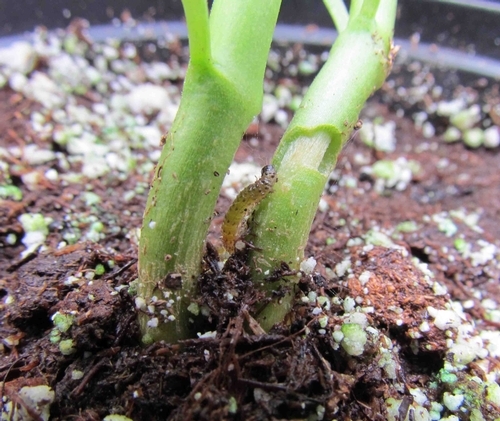Posts Tagged: Steve Tjosvold
UC receives more than $6 million for specialty crop research
University of California researchers will receive more than $6 million in funding from the U.S. Department of Agriculture’s 2011 Specialty Crop Block Grant program, which is intended to enhance agricultural markets, address environmental concerns, protect plant health, provide farmers with scientifically tested production techniques and increase food safety.
The USDA awarded $55 million nationwide for the Specialty Crop Block Grant program, which provides grants to states to enhance the competitiveness of fruits, vegetables, tree nuts, dried fruits, horticulture and nursery crops.
The California Department of Food and Agriculture identified 72 projects in the state for funding, including 30 projects led by University of California agricultural researchers.
“Funding for specialty crop research is critical to California’s $37.5 billion agricultural industry because many of the crops grown in California are considered specialty crops,” said Barbara Allen-Diaz, UC vice president for agriculture and natural resources. “With these funds, UC scientists will be helping California farmers find new ways to protect their crops from pests and diseases, remain economically viable, and provide healthy food for an increasing number of people.”
Highlights include:
- The UC Davis Center for Produce Safety received a combined $1.4 million for food safety projects, many of which will develop strategies to reduce the risk of foodborne illness.
- Assessing temperature conditions to determine the potential for using wind machines as an alternative to sprinklers for frost protection in coastal vineyards with the ultimate goal of reduced water use is the goal of a $59,961 project led by UC Cooperative Extension viticulture advisor Mark Battany in San Luis Obispo County.
- The UC Agricultural Issues Center will be conducting an analysis of the effects of quality control standards and European Union trade policies on the California olive industry, to identify market opportunities as standards and policies change, funded for $135,883.
- The largest single award made to UC in this round was $495,750 to a statewide project that will assess the effects of reduced irrigation on strawberries, blueberries and blackberries -- including berry yield, nutritional content, flavor and consumer preference -- led by researchers with the UC small farm program.
- A project that will train small-scale, Latino, Hmong and Mien growers in Fresno, the Sacramento Valley, the Central Coast and Southern California regions to compete in new markets, led by the UC Sustainable Agriculture Research and Education Program, received $86,851.
- Developing improved integrated pest management strategies that could help ornamental nurseries protect against the light brown apple moth is the goal of a $255,598 project led by Steve Tjosvold, UC Cooperative Extension farm advisor for Santa Cruz County.
“Many of these projects are collaborative efforts between farmers and scientists from UC campuses, UC Cooperative Extension advisors in counties, and other agencies and educational institutions,” Allen-Diaz said. “This array of expertise focused along the spectrum of specialty crops production will help keep California competitive in the global economy.”
For a complete list of California’s Specialty Crop Block Grants projects, please visit http://www.cdfa.ca.gov/grants.

191-1439
Cooling cattle; European pepper moth examined
For an article "Should Wyoming livestock and ag adjust to climate?" in the Billings Gazette, reporter Paul Murray sought information about livestock animals' response to warmer temperatures from Frank Mitloehner, UC Cooperative Extension Specialist in the Department of Animal Science at UC Davis. Mitloehner talked about ways animals can cool down and discussed shade, fans, sprinklers and even alternative cattle breeds. "We're seeing more and more extreme weather. That is a tendency we're seeing more and more often. That can stress animals. Similar to animals in the wild, that can impact animals' reproductive ability and their performance," he told the reporter.
European pepper moth widespread in California
Surendra Dara for Western Farm Press
Western Farm Press published this article about European pepper moth by Surendra Dara, UC Cooperative Extension farm advisor in Santa Barbara County. Dara explains that the European pepper moth has been reported in several central and southern California counties. The pest prefers to feed at the plant base of crops such as corn, peppers, tomatoes, squash, strawberries and some ornamental plants. Dara has been appointed to the national Technical Working Group for European pepper moth, along with UC Cooperative Extension colleagues James Bethke and Steve Tjosvold.
Dara also wrote about this pest and shared photos of it on the UC Strawberries and Vegetables blog.

